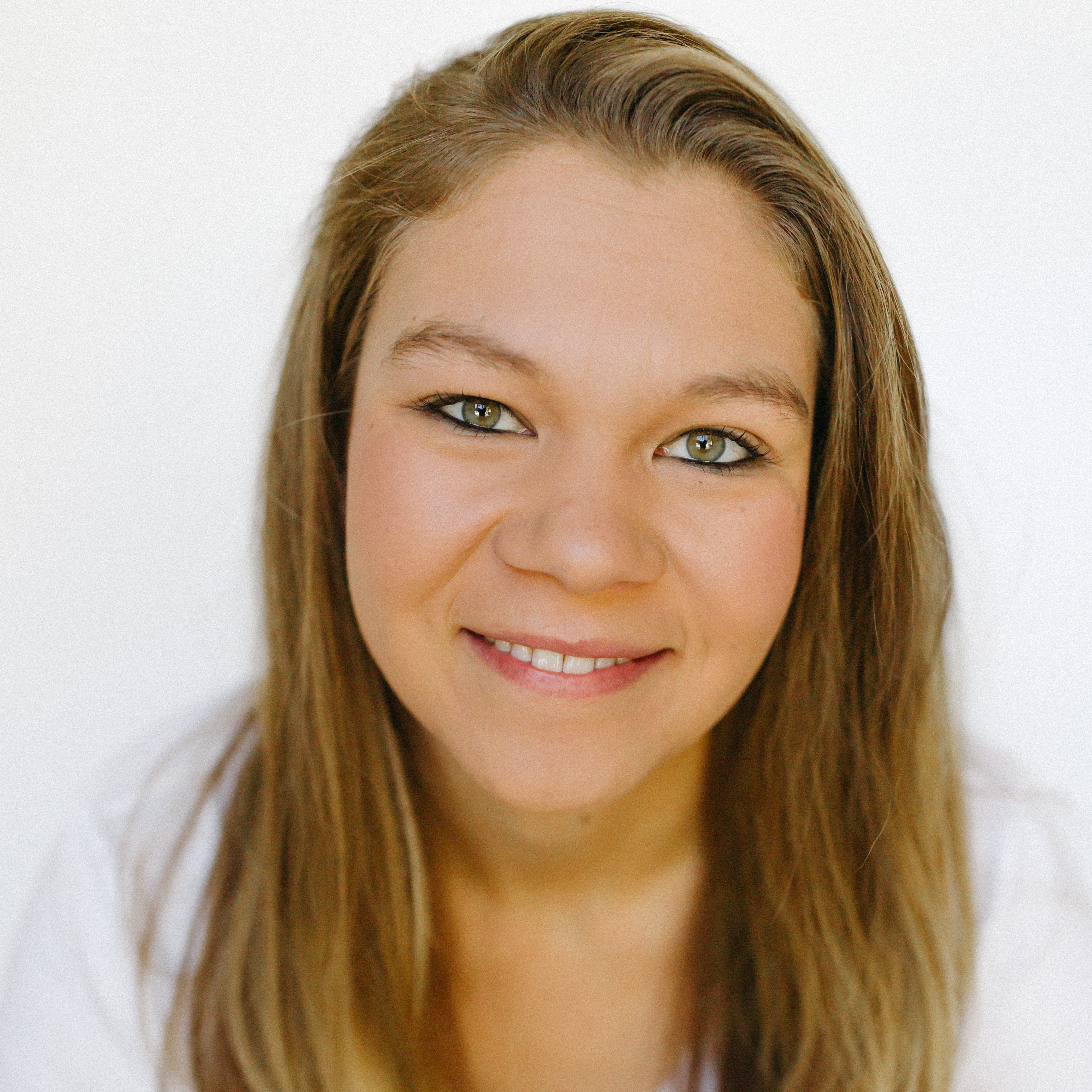
I’ll set the scene for you.
It’s February of 2020. My husband and I have been looking at houses for a while, and we finally found one that we loved. We sit down with our financial planner and real estate agent to help figure out our next move.I’m sitting in a conference room at a conference-y table with big black squishy conference-y chairs. The room smells like distant coffee and a hint of cleaning solution. I noticed that when I touch the table it makes a smudge on the pristine tabletop, and I quickly use my sleeve to try and rub it off as I sit down and continue nervously rubbing my fingers along the inside of my sleeve.
My husband and I sit on the opposite side of the table from Andy, our financial planner, who is tall and lanky and dressed in khakis and brown shoes and a lightly striped button down, long sleeved dress shirt. He is nice and kind and smiles at us as he opens his black portfolio and clicks his pen two, three, four times. Next to him sits Cole, our real estate agent, with a big smile and warm expression.
After exchanging greetings, Andy and Cole go back and forth for a few minutes. I feel like I am amidst the most boring tennis match in the world. I try and stay focused and follow along, but I feel like they are speaking a totally different language. They keep using words that I recognize but have no idea what they actually mean or how to use them.
“Escrow”
“Annual percentage rate”
“Equity”
“Interest”
“Lien”
The more terms kept being thrown out into the wind, the more I sink down into the squishy black chair. The truth of the matter was, I had absolutely no idea what these two were talking about. I couldn’t follow at all. They spoke freely and easily, and I knew I should know what was happening, but definitely didn’t know what was happening. Then, the moment came:
“OK Kirsten, how do you feel about that?”
Ehrm. Well. Uhm...
I probably shouldn’t agree to something that involves savings and large amounts of money just because I should know what’s going on in the room. Cole and Andy weren’t trying to be exclusive - in fact quite the opposite. They were trying to include me in the discussion. They aren’t bad people, they aren’t unkind. The situation was just that I was expected to understand, and frankly, didn’t. Even with the high stakes, I couldn’t possibly let anyone know that as a full-grown, full-time working, functioning adult I really had no idea what “escrow” is. I should know what that means.I should.
“Yeah! I feel great about that. Sounds good.”
I nod. I smile. I sit up a little straighter in my chair (the sinking lower didn’t seem to help me to disappear quite as much as I thought it would) and engage further in nodding along and smiling. Maybe - just maybe - if I nod and smile, I can convince them that I’m following and they won’t single me out or ask me again. My face is smiling. My head is nodding. But my gut is sunk.
How do I not know this? I thought I was smart, but I feel so, so dumb.
I should know.

Ok - but what does this have to do with teaching chorus?
Stories like this help me remember what it is like to not understand. This year is my 10–year reunion from college - the last time I went to school. I’m sure there were moments that I felt this way in a class here and there, but for the most part, I understood the thing I cared about. If I got less-than-excellent grades in school, it was, for the most part, for a lack of doing homework or putting in effort. There have been few times that I’ve wanted to be good at something and actually have not been good at that thing - mostly when it comes to music.
I think of this story, and I remember how it felt to feel like everyone else knows this and I am less qualified as a human being because I don’t know this thing.
Oof.
I mean, logically, it’s pretty silly. Of course I’m not less than human for not understanding these real estate terms. But that’s the way it felt. I was expected to know. I stepped into a room, a culture, and it was assumed that I already know, just because I walked into the room.
How often do we do this with the people that trust us enough to come into our choral spaces - whether it be an adult community choir or a middle or high school choir? The difference between my example story and people in choir is this: many of the people in choir actually want to learn to sing, or even more, are passionate about it! (That said, if I’m being honest, I really could care less about the meaning of “annual percentage rate”, what it does, or why it’s important.)
So much of the choral experience for new singers lives in the dark gray cloud that I like to call the “Culture of Should.” They come, join the chorus, sing softly (if at all). They step into a room - a culture - where everyone knows a thing. The singers around them understand the jargon and can follow at a moment’s notice. Perhaps a singer is looking confused, so the conductor or a fellow singer asks them in rehearsal if they are following along well.
The new singer nods. They smile. They sit up a little straighter in their chair and engage further in nodding along and smiling. Maybe - just maybe - if they nod and smile, they can convince the other singers and conductor that they’re following and they won’t get singled out again. The singer’s face is smiling. Their head is nodding. But their gut is sunk.
I know what living in the “Culture of Should” feels like. I’m sure anyone reading this blog article can think of a moment or a time when they have felt this feeling. And from experience I can tell you, this feeling totally, totally, absolutely, truly, one hundred percent SUCKS. I’ve looked around at choirs and seen people in the absolute thick of this gray cloud, looking around and begging to get out. But they can’t - they are afraid to admit they don’t know. Because, of course, they should. I feel that pain so much, because that Culture of Should can quickly spiral into “I am not enough.” Would you sign up for a weekly (or daily for schools) block of time featuring the incredible feeling of “I am not enough?” Because I definitely would not.
So we’ve determined that the feeling sucks, and we definitely don’t want anyone in our rehearsals to feel that way. But…I’ve also said that singling a person out doesn’t help either. So…how do we help?
The answer was actually given to me by my dear friend and South Shore Children’s Chorus (SSCC) colleague, Liz Schorr. She used these words one day and they ring through my head every moment of every day now, and they shape my teaching and leading and honestly everything I do.
We value learning over knowing.
The answer isn’t as easy as do X and get Y result. Instead, it’s a shift in culture.
It’s a total 180 degree spin on how we think about leadership - both as leaders of ensembles and inspiring leadership within our ensembles.
We’ve been trained to look at our ensembles and value those who are doing it “right.” We value those who can sing in tune, who can read the sheet music, who can play the piano (eek), or who understand what we mean when we say “at measure 67 we are going to work a slow ritardando - railroad tracks after the half note - then I’ll give you beat 3 and you come in with me at a faster tempo.” We’ve taken our “best” singers and given them the title of “section leader” and encouraged others to model themselves after them. We make a big deal if the section leader is absent, and encourage the others that YES, they CAN do it without the “one who knows” in the section.
Most of us have been trained to value knowing over learning. We lift up those who know, and tell those who are learning to be just like those who know. Because the goal, of course, is knowing. The ultimate goal is knowing.
…..is it? …..does it have to be that way?
I’ll have my 32nd birthday in April (April 25th, if you must know) and let me tell you - every single day I learn. Every. single. day.
I have so much knowledge that I’ve learned through classes and experiences of my life for the past 31 and 11 months. I’ve learned about life. I’ve learned about love. I’ve learned about creating and running a nonprofit. I’ve learned about relationships. I’ve learned how to be a friend. I’ve learned when to draw boundaries. I’ve learned about music and singing it and expressing it and writing it and conducting it and rehearsing it.
I’ve learned deeply about grief and pain, and how it can turn your life upside down in so many ways. I’ve learned that I love the springtime and honesty and coffee and golden retrievers and anything with avocado on it and the movie National Treasure with Nicholas Cage. And while those things add great value to my life, I know them now. What gives me hope and motivation to keep going and keep pushing forward and (though it sounds cheesy) to keep living life to the fullest is the value of what I have yet to learn.
I talk to my SSCC 7th-12th grade singers all the time about what it means to be a leader of your own experience and environment. Together, we create a culture that values learning over knowing. I promise them that I will always answer a question if they have one. But it is their responsibility to ask if they don’t understand.
I make it very clear that in this environment, you are considered a leader if you ask a question and alert me to the fact that you do not understand. If they sink down in their squishy black chair and nod and smile and their gut sinks through their big toe and they are living in the dark gray Culture of Should, it is on them to climb out of it. I will provide the ladder every single time. All they have to do is ask to have access to the ladder.
All of SSCC’s choirs are non-auditioned. The chorus I am specifically referencing here, Dynamic, is about 60 students strong. These students represent 20+ different schools and 60 different experiences. Some students have in-school choir opportunities. Some don’t. Some students play an instrument. Some don’t. Some sing in the shower. Some don’t. I make it very clear at the beginning of the year that this group values those differences.
If someone isn’t sure which line their eye is supposed to be following, it doesn’t make them any less than someone who can sightread or write in their solfege. More than just saying it, we follow that up with action. While I’m never perfect, I work very intentionally to make sure that everyone in the ensemble is treated with the same level of importance - regardless of what they already know. However, it is everyone’s individual responsibility to figure out what they don’t know - because that is how we grow - as individuals and as an ensemble.
We have all the resources. But you are the advocate for your own education. You are the leader of your own experience. There is no peer section leader who will tell you what to do because they are “better” or “more experienced” or “know” more than you. A 7th grader is just as important as a senior, because the 7th grader is in charge of their own learning. Their questions, confusions, and quest for knowledge are valued. There is no expectation of “should.”

You are valued because you are willing to take ownership of your own learning.
This means that, when you step into our room - our culture - you are equal among everyone else. What you already know doesn’t really matter. What matters is that you want to learn. And MY job is to help you learn stuff from wherever you start. Your job is to not get left in the dust and to be vocal about what you don’t understand. My job is to not leave you in the dust and to be gracious and kind when you admit that you don’t understand something, and bring you to that understanding. Together, collaboratively, we value being learners.
This model also works really well for our teaching staff. I don’t claim to be a perfect artistic leader - I am still (you guessed it) *learning* a lot about what artistic leadership looks like. What I have learned so far is that the teachers that work for SSCC want to continue to learn and grow their craft. They, also, are not valued for what they know. In fact, I can’t think of a single SSCC teacher who is the same exact teacher they were 2, 3, or 5 years ago. I get questions all the time - requests for critical feedback so they can improve.
Even better than that? They lean on each other as resources. Someone will call someone else and ask for advice on how to learn and how to grow in a specific way or area. And because the person they called has different knowledge and different experience, they can help. But the fact remains: they are valued for the fact that they are actively learning.
Building our organization together with this value as a cornerstone creates a culture of growth and forward motion. It is truly unique, and truly exciting to see.
This culture shift isn’t something that can happen overnight. It takes commitment, and an incredible amount of reflection - especially from those of us on the podium (or with the title artistic director, teacher, conductor, or leader).
As a teacher, I reflect on questions like:
- Who are we calling out in rehearsal, and for what reason?
- Are we calling positive attention to individuals for their desire to learn?
- Are we creating an equitable space for learning?
- Are we creating that dark gray cloud of the "Culture of Should?"
As a leader of artistic staff, I reflect on questions like:
- Am I creating a space where staff can feel safety in not knowing?
- How am I providing spaces for my staff to connect and learn from each other?
- Am I giving feedback in a way that is kind and encourages learning, creativity, and inspiration?
- How am I handling staff "mistakes?" Do they feel comfortable admitting they are still learning too?
…yet.
We are human beings that don’t know everything. Every person on earth has a different experience which leads to different knowledge. You don’t always know - you are learning too! You are always learning - it never stops. With every experience, rehearsal, and human interaction you are learning. The world around us is always changing. It is up to us to learn, adapt, and evolve. Bonus points if we can do it with joy!

Kirsten Oberoi is a music educator, podcaster, composer, vocalist, and arts administrator in the Boston Area. She is the Founding Artistic Director of the South Shore Children's Chorus, the General Manager of the Greater Boston Choral Consortium, and recently launched her podcast Choral Connectivity: A People-First Approach to Singing. When not chorus-ing 24/7, Kirsten enjoys cooking meals for her and her choral-director-and-musical-theatre-composer husband and heading to competition obedience class with her two golden retriever puppies Chester and Charlie.

